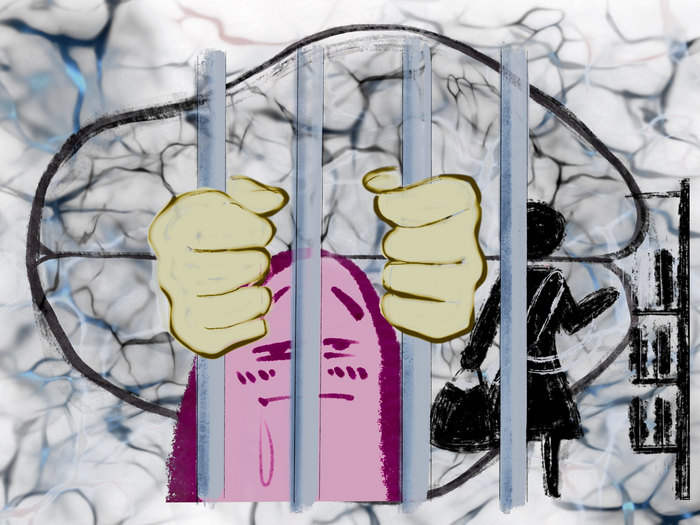Kyoto, Japan — Don’t call a kleptomaniac a crook. Not only are the underlying motives for stealing different, brain activity also shows contrasting images.

Credit: KyotoU/Jake Tobiyama
Kyoto, Japan — Don’t call a kleptomaniac a crook. Not only are the underlying motives for stealing different, brain activity also shows contrasting images.
A team of researchers at Kyoto University has recently found that patients with kleptomania exhibit distinct patterns of gazing and brain activity when shown images with environmental cues relevant to their symptoms. Such characteristics were not observed in healthy subjects, including those who may have occasionally nabbed from the cookie jar.
“Studies such as ours could help deter impulsively committed crimes like shoplifting and contribute to realizing a better society,” says lead author Yukiori Goto.
Investigations of patients with alcohol addiction also revealed environmental cues leading to cravings, a phenomenon known as cue-induced craving.
“Although the sample size was small and still preliminary, our study reports for the first time that kleptomania may also involve the mechanisms that could be similar, if not identical, to those related to drug addiction,” notes Goto.
Other behavioral addictions observed in gambling, gaming, and Internet use share these mechanisms, clinically termed substance use disorder.
Kleptomania is characterized by pathological, compulsive, and repetitive stealing for the sake of the act itself and not motivated by any sense of material gain. Therapeutic treatments are becoming more important in preventing repeated convictions than conventional criminal penalties, which have been shown to be ineffective in curbing this maladaptive behavior.
While kleptomania meets the criteria of addiction and is classified as a “Disruptive, Impulse-Control, and Conduct Disorder” by the American Psychiatry Society, few studies of the condition have been published to date.
Goto’s research examined 11 patients with behavioral addiction and 27 healthy adult subjects. Each was shown still and video images, some containing symptom-relevant environmental cues — such as shops and their merchandise — with others depicting irrelevant ones such as natural scenery.
Using eye-tracking technology, all subjects’ gaze patterns were monitored while they viewed the test materials. Their brain activity was simultaneously measured with functional near-infrared spectroscopy, a non-invasive method that detects hemoglobin changes in the prefrontal cortex.
The team’s fNIRS recordings revealed compromised activity in the right prefrontal cortex of kleptomania patients during task performance. These results correlated with other behavioral addicts exhibiting an inability to estimate probability of risk and finding themselves in a reward system trap.
“Our study may lead to the development of therapeutic treatments targeting maladaptive learning, not only for drug addiction, but also impulse control disorders such as kleptomania,” reflects Goto.
###
The paper “Distinct Situational Cue Processing in Individuals with Kleptomania: A Preliminary Study” was published on 2 February 2023 in the International Journal of Neuropsychopharmacology with doi: 10.1093/ijnp/pyad005
About Kyoto University
Kyoto University is one of Japan and Asia’s premier research institutions, founded in 1897 and responsible for producing numerous Nobel laureates and winners of other prestigious international prizes. A broad curriculum across the arts and sciences at both undergraduate and graduate levels is complemented by numerous research centers, as well as facilities and offices around Japan and the world. For more information please see: http://www.kyoto-u.ac.jp/en
DOI
10.1093/ijnp/pyad005
Method of Research
Experimental study
Subject of Research
People
Article Title
Distinct Situational Cue Processing in Individuals with Kleptomania: A Preliminary Study
Article Publication Date
2-Feb-2023
COI Statement
The authors declare no conflicts of interest.




